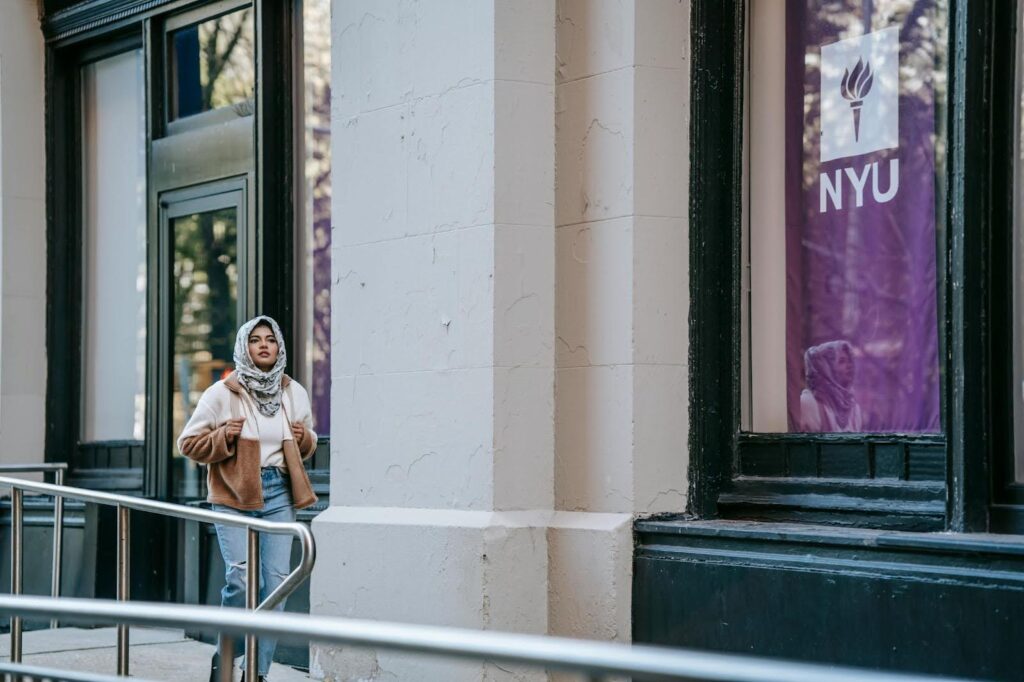Introduction to Studying Abroad
Studying abroad is one of the most rewarding steps you can take for your education and personal growth. For Malaysian students, it offers the chance to gain globally recognised qualifications, experience different cultures, and develop skills that set you apart in the job market.
This guide walks you through the process from deciding on your course to boarding your flight with practical tips to make the journey smoother. If you prefer personalised assistance, you can always reach out to our education advisors.
Step 1: Identify Your Goals and Priorities
Before looking at universities or filling in applications, get clear on your priorities:
- Field of study – What subject excites you and fits your career plans?
- Academic level – Are you pursuing an undergraduate, postgraduate, or professional course?
- Budget – How much can you afford annually for tuition and living costs?
- Language – Will you need to meet specific language requirements?
- Lifestyle – Do you prefer a city campus, a quieter location, or specific climate conditions?
A clear vision will help you filter through hundreds of possible courses and destinations.
Step 2: Research Courses and Universities
Once your goals are defined, start exploring study options. Reliable sources include:
- Official university websites
- International education fairs
- Reputable education agencies like Inquota
- Alumni or current student networks
When comparing universities, look at rankings, course content, faculty expertise, industry links, and available facilities.
Step 3: Understand Entry Requirements
Every course has its own academic and language entry criteria. Common requirements for Malaysian students include:
- Academic qualifications – SPM, STPM, A-levels, diploma, or bachelor’s degree
- English proficiency – IELTS, TOEFL, PTE, or equivalent tests
- Standardised tests – Some courses may require SAT, ACT, GMAT, or GRE
- Portfolio or audition – For creative and performing arts programmes
Check deadlines carefully. Some programmes close applications up to a year before the start date.
Step 4: Prepare for Your Application
A strong application usually includes:
- Completed application form
- Certified academic transcripts
- Proof of English proficiency
- Personal statement or statement of purpose
- Letters of recommendation
- Valid passport
- Application fees
Make sure all documents are accurate, clearly scanned, and translated into English if needed. Applying early increases your chances of securing a place and preparing for visa requirements.
Step 5: Explore Scholarships and Funding
Funding is often the deciding factor in studying abroad. Options for Malaysian students include:
- University scholarships based on academic merit or extracurricular achievements
- Government and foundation scholarships such as Yayasan Khazanah, MARA, or JPA
- Private sector or corporate sponsorships
- Education loans from banks or PTPTN
Read eligibility criteria carefully and prepare supporting documents early, as scholarship deadlines may differ from course applications.
Step 6: Student Visa and Immigration Essentials
Visa requirements vary by country, but most will ask for:
- An official offer letter from your chosen institution
- Proof of funds for tuition and living expenses
- Academic records and qualifications
- English language test results (if applicable)
- Medical examination or insurance proof
Common mistakes include missing deadlines, incomplete bank statements, and failing to provide translations for non-English documents. Allow sufficient time for processing, as delays can affect your travel dates.
Step 7: Accommodation Planning
Your housing choice affects both your budget and student experience. The main options include:
- On-campus accommodation – Convenient and social, often with meal plans included
- Private rentals – More independence, but requires upfront deposits and furniture arrangements
- Homestay – Good for cultural immersion and additional support
Research costs and availability early, as student housing in popular cities fills up fast.
Step 8: Budgeting for Life Abroad
Budgeting is more than just tuition fees. Factor in:
- Rent and utilities
- Food and groceries
- Transport passes
- Books and study materials
- Health insurance
- Personal expenses
Tracking expenses from the start can help you avoid running short later in the semester. Many students use budgeting apps to manage their finances abroad.

Step 9: Working While Studying
Many countries allow international students to work part-time during term and full-time during breaks. This can help cover living costs and add valuable experience to your CV.
Always check your visa conditions before starting work to ensure you do not exceed permitted hours or breach any regulations.
Step 10: Pre-Departure Preparation
Before your departure:
- Book flights and arrange airport transfers
- Keep essential documents in your hand luggage
- Make copies of academic and visa documents
- Get local currency for immediate expenses upon arrival
- Install communication and map apps for easy navigation
- Learn basic phrases if your host country speaks a different language
Joining student forums or WhatsApp groups before you leave can also ease your transition into a new culture.
Step 11: Adjusting to Life Abroad
The first few months can be a mix of excitement and challenges. To settle in smoothly:
- Attend orientation sessions at your university
- Get involved in student clubs and societies
- Keep regular communication with friends and family at home
- Explore the local area and community events
- Reach out to the international student support office for guidance
Building a balanced routine of study, work, and leisure will help you thrive in your new environment.
Where to Get Personalised Guidance
Navigating applications, visas, and scholarship deadlines can be overwhelming. Our experienced Inquota counsellors provide tailored support to help you make confident decisions. If you’re ready to start your journey, contact us today.
FAQs
Start preparing at least 12–18 months before your intended intake to meet application and visa deadlines.
Most universities require proof of English proficiency. IELTS is widely accepted, but TOEFL or PTE are also common.
Budgets vary depending on country and lifestyle, but always account for tuition, accommodation, living expenses, and travel.
Yes, in many countries you can work part-time during term and full-time during holidays, subject to visa rules.
Most universities have international student offices, and Malaysian student associations are active in many destinations.




